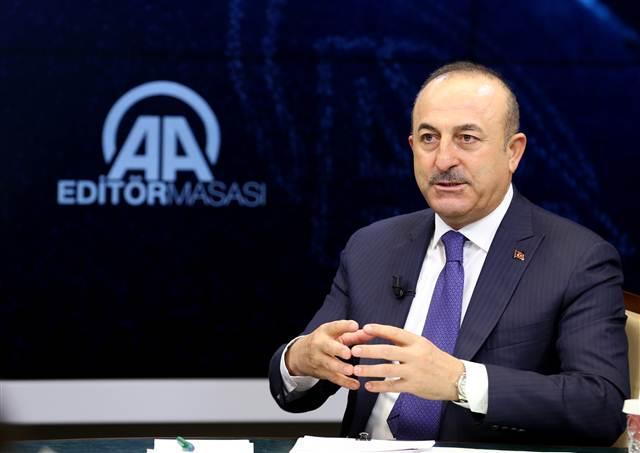
Turkey has asked Iran and Russia to restrain the Bashar al-Assad regime’s bombing of the rebel-held northern province of Idlib, as tensions over the so called “de-escalation zones” in northern Syria mounted ahead of mooted peace talks later this month.
“Russia and Iran must stop the Syrian regime. They should realize their duties as guarantor countries,” Çavuşoğlu told state-run Anadolu Agency on Jan. 10.
His comments came after the Turkish Foreign Ministry summoned the Russian and Iranian ambassadors to Ankara on Jan. 9, where both envoys were warned about Ankara’s growing disturbance over the Syrian regime’s military operations in Idlib.
Diplomatic sources told the Hürriyet Daily News that Turkey asked the two countries to put pressure on Damascus to end the operations.
Çavuşoğlu accused the Syrian regime of trying to weaken moderate opposition groups in Idlib with attacks and violating a three-way deal agreed between Turkey, Iran and Russia seeking to establish and maintain a de-escalation zone in Idlib as the guarantor powers.
Some parts of Idlib province are under the control of Hayat Tahrir al-Sham, spearheaded by the former al-Qaeda affiliate in Syria that was known as the al-Nusra Front.
The U.N. High Commissioner for Human Rights expressed grave concern for an estimated 2 million people in the Idlib region, where the population has grown as Syrian rebels and civilians fled government advances in other areas.
According to European officials, some 1.4 million people are in need of humanitarian assistance in Idlib, while over 70,000 fled into the area in recent months following fighting elsewhere in Syria.
Çavuşoğlu said 95 percent of the violations in Idlib were carried out by the regime and other groups backing the regime. Recalling that a “national dialogue congress” is due to convene in Russia’s Sochi in late January, he warned that attacks by the regime would negatively affect efforts to launch a process for a political settlement.
The Turkish foreign minister also reiterated Ankara’s staunch stance that it would not approve the participation of the Syrian Kurdish People’s Protection Units (YPG) in the Sochi congress, as it considers it a terrorist group for its links with the outlawed Kurdistan Workers’ Party (PKK).
“We have made clear that we will never be at any meeting where the YPG is represented,” he said.
‘Let’s revive the Geneva process’
On the question about Western skepticism of the ongoing Astana and Sochi processes, Çavuşoğlu suggested that “the reason for this perspective is because they are not involved in these meetings.”
“We call on all [anti-ISIL] coalition countries that are involved in Sochi and Astana to revive the Geneva process. After the meeting in Sochi [at the end of January], we will hold a meeting at the foreign ministerial level for like-minded countries in Turkey,” Çavuşoğlu said.
The Geneva process was first launched in 2012 under the auspices of the United Nations but failed to produce a breakthrough to end the civil war in Syria.
On the Moscow side of the tensions, drones that attacked Russian bases in Syria last week were sent from Idlib, the Russian Defense Ministry’s official newspaper reported on Jan. 10.
“The drones were launched from the area of Muazzara in the southwestern part of the Idlib de-escalation area controlled by so-called ‘moderate opposition’ units,” Defense Ministry newspaper Krasnaya Zvezda said.
The ministry has written to the chiefs of the Turkish army and intelligence service to insist that Ankara fully implement a cease-fire in Idlib province, the paper added.
On Jan. 8, Russia said pilotless drones carrying explosives attacked Russian bases in Syria last weekend without causing any casualties or damage.